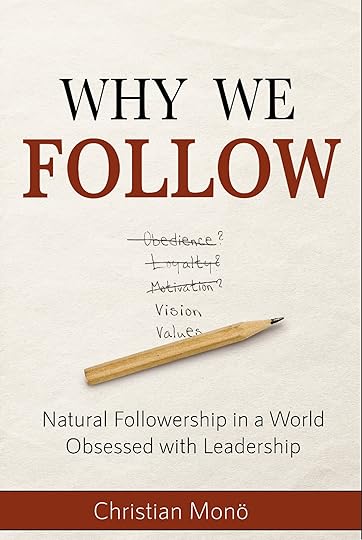Our Leader-Centric Mindset Is Eroding Democracy
 © Envato
© EnvatoIn a speech last week, Magdalena Andersson, the former Swedish Prime Minister and head of the Social Democrat party, made a peculiar statement. She observed that “an increasing number of countries are moving in an authoritarian direction.” Yet, in these troubling times, she argued, the world “requires stronger leadership.”
What Andersson meant by “strong leadership” wasn’t entirely clear, but it’s a phrase used increasingly often in politics – especially in countries with authoritarian decision-makers.
The Democratic ErosionAndersson is right—we are seeing a shift towards more authoritarian behaviours in politics. In their wonderful book, The Origins of Elected Strongmen, Erica Frantz, Andrea Kendall-Taylor, and Joe Wright describe a nearly three-decade decline in democracy. They link this development to a global rise of personalist political parties, “a trend consistent with the growing personalization of politics observers have documented in democratic systems.”
I’ve noticed similar trends in my own work. While many factors contribute to this personalization of politics, there’s one root cause we often overlook—our leader-centric mindset.
 © EnvatoHow Leadership Has Changed Our Thinking
© EnvatoHow Leadership Has Changed Our ThinkingIn my book Why We Follow, I explore how leadership became a global phenomenon around the mid-1970s. Since then, the concept has come to influence our thinking, shaping both our worldview and our behaviour.
This shift has given rise to a range of paradoxes, some of which I’ve mentioned before. For example, while people still believe in democracy—“rule of the people”— they also insist that people need leaders to guide them.
We're not born with these contradictory thoughts. Rather, I believe they stem from decades of being conditioned to see leaders as the solution to all our problems. This mindset has shaped us far more than we often recognize.
Consider the evolution of election posters in Sweden. Early 20th-century posters focused on ideologies and collective visions. By the 1990s, that had changed, and most posters featured the head of the party. For instance, during the 1998 elections, the Swedish Centre Party ran a poster featuring its head, Lennart Daléus, with the simple caption: “This is Lennart.”
Our Belief in Leadership Makes Us PassiveImagine you’re on a boat that’s taking on water through a crack in the hull. You grab a bucket and start bailing water, urging your friend to find the captain. As the water rises, the captain appears and assures you, “Don’t worry, the pumps will take care of it.”
Twenty minutes later, you’re treading water as the boat disappears beneath the surface.
This is the danger of a leader-centric mindset. When experts tell us that leaders will solve our problems, we’re more likely to adopt a passive stance. Whether it’s a minor issue at work or a major crisis like climate change, we’ve been conditioned to wait for a “leader” to take charge.
This passivity creates fertile ground for authoritarian figures. By identifying—or even manufacturing—problems that no one has addressed, they can position themselves as the “strong leader” we’ve been waiting for. The rest of us lean back, hoping they’ll deliver. But as The Origins of Elected Strongmen illustrates, once such individuals gain power, they often dismantle democratic systems. And once democracy is dismantled, it’s incredibly difficult to restore.
 A Call to Action
A Call to ActionWe need to rethink our fixation on leadership. Democracy isn’t about waiting for a saviour; it’s about collective action and shared responsibility.
If we want to protect democracy, we must shift our mindset. Instead of asking who will lead us, we should ask: what can we do together?
The future of democracy doesn’t depend on finding the perfect leader. It depends on rediscovering the power of the people—the power of natural followership.
New books on this topic
The Origins of Elected Strongmen by Erica Frantz, Andrea Kendall-Taylor, and Joe Wright. Although academic, this book is highly accessible and incredibly engaging.
To Stop a Tyrant by Ira Chaleff. While I haven’t read this book yet, having enjoyed Chaleff's previous works and seen the positive reviews, I’m confident this will be a compelling read.
And of course:
Why We Follow - Coming January 31, 2025.




